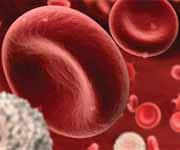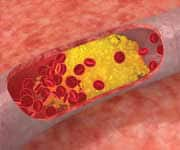|
Reprinted with permission of Life
Extension®
What Doctors Don't Know about
Inflammation
 During an infection,
the body requires protective acute inflammation to fight off
foreign invaders. Over time, aging upsets the balance of the
inflammatory response. The tragic result is ongoing chronic
inflammation that underlies most diseases of aging. Fortunately,
scientists have discovered that black cumin seed oil safely
modulates the balance of the inflammatory response. During an infection,
the body requires protective acute inflammation to fight off
foreign invaders. Over time, aging upsets the balance of the
inflammatory response. The tragic result is ongoing chronic
inflammation that underlies most diseases of aging. Fortunately,
scientists have discovered that black cumin seed oil safely
modulates the balance of the inflammatory response.
Scientifically
reviewed by: Dr. Scott Fogle, ND, Physician, in May 2022.
Written by: Logan Bronwell.
|
|
What Doctors Don't Know about Inflammation

Inflammation is an underlying culprit behind virtually all
age-related diseases.1,2 That's why nutrients like curcumin,
fish oil, and vitamin D have become so popular.
Less understood is that as maturing people suffer chronic
inflammatory insults, they simultaneously encounter impairment of
beneficial immune responses necessary to kill foreign invaders and
malignant cells.
Aging destroys the delicate balance between destructive and
protective inflammatory responses.1-4 Fortunately, scientists
have discovered a method to turn back this lethal process! 5-9
|
WHAT YOU NEED TO KNOW
|
|
Aging changes the way your immune system functions, increasing
inappropriate inflammation while suppressing appropriate immune
responses.
The result of this inflammatory and immunological imbalance is a host
of chronic, age-related diseases that contribute to early death
|
|
|
The components of black cumin seed oil have
unique properties that restore a youthful and optimal inflammatory
balance to the immune system's components.
Through this mechanism, black cumin seed oil
has the potential to mitigate—and even reverse—chronic diseases such as
arthritis, allergies, asthma, colitis, and cardiovascular disease.
Studies show that it is possible to achieve a
better overall immunological balance, one that promotes health and
defeats inflammation, by supplementing with black cumin seed oil.
|
In this article, you'll learn about a new
discovery that can boost immune function while suppressing damaging
inflammatory reactions.5-13
Chronic inflammation damages cells throughout
our body, including the delicate linings of our arteries and our
precious brain cells. About 25% of all cancers are associated with
chronic inflammation that causes mutations that lead to malignant
changes.14
A certain degree of healthy inflammation is
needed, however, to protect us when the body encounters infectious
agents,3 trauma, and malignant cells.
|
|
With aging there is
an imbalance that results in low-level systemic inflammation
slowly destroying tissues, while our ability to mount a strong
immune response to pathologic killers is diminished. This
imbalance underlies virtually all diseases of aging and early
death.1,2
Scientists have found
that oil from the seed of the black cumin plant (Nigella sativa)
can reverse this age-related process!5-9
New discoveries
reveal that black cumin seed oil contains potent but non-toxic
compounds that suppress excessive inflammatory molecules5-7
while at the same time stimulating the normal, acute
inflammation we need to fight infections and kill cancers.8,9,13
Balanced Inflammation
 So how do our bodies distinguish between
"good" inflammation and "dangerous" inflammation? So how do our bodies distinguish between
"good" inflammation and "dangerous" inflammation?
When optimally
balanced, our bodies' chemical and cellular systems fine-tune
the inflammatory response, providing enough immediate action to
stop an invader, and then, at the correct moment, shut it down
when the threat is gone.
But when age
unbalances this system, our bodies gradually shift into a
chronically inflamed state called inflammaging.3 At
the same time, we increasingly develop immunosenescence, a loss
of immune function that leaves us vulnerable to dangerous
infections and cancers, both of which require a vigilant and
potent immune system for their prevention.4
In recent years,
hundreds of studies have emerged indicating that black cumin
seed oil critically rebalances the body's inflammatory factors.
Through this delicate balancing effect, this powerful seed oil
battles a broad range of conditions, including allergies,
asthma, cancer, cardiovascular disease, diabetes, rheumatoid
arthritis, and colitis.
|
Managing Arthritis
One of the earliest
recorded uses of black cumin seed oil was for the prevention and
treatment of arthritis.15 Nearly 52 million modern
Americans suffer from some form of the disease, almost 23% of
the adult population.16 Both major forms of arthritis,
rheumatoid and osteoarthritis, involve excessive inflammatory
responses.
|
BLACK CUMIN SEED OIL BOOSTS
IMMUNOMODULATION
|
|
Black cumin seed oil joins a small
handful of nutraceuticals now known to modulate the
immune system in both directions. In addition to
suppressing dangerous chronic inflammation, black cumin
seed oil has been shown to boost appropriate immune
function. The result is enhanced protection against both
infections and cancer.10
In other words, black cumin seed oil
offers true immune system balancing, promoting healthy
immune function when it's needed, while suppressing
excessive immune activity (inflammation), when it's
deleterious.
Black cumin seed oil achieves this
immunological balancing act by means of several distinct
but interrelated mechanisms.
First, black cumin seed oil
stimulates actions of patrolling immune system cells on
the lookout for invading organisms or abnormal cancer
cells. The oil triggers an increase in the activity of
macrophages (cells that engulf and destroy abnormal
cells) and helper T-cells (cells that marshal natural
killer cells and direct them to their targets.)11
Mice injected with the oil were
dramatically protected against cytomegalovirus, a
version of the herpes virus that can infect humans and
cause birth defects and other consequences.11
While control animals still had detectable virus in
their systems at 10 days, treated mice were virus-free,
the result of enhanced macrophage and T-helper-cell
activity.
|
|
|
Thymoquinone, an active component of
black cumin seed oil, specifically boosts survival and
activity of other key cells in the immune response to
infection or cancer, namely so-called CD-8 T-cells.12
These cells are the field troops that actively hunt down
and kill infected or cancerous cells, after activation
by T-helper and macrophage cells. This activity, known
as "conditioning," amplifies the effectiveness of these
vital immune system cells against cancer and infectious
diseases.12
These effects appear in humans
treated with black cumin seed oil as well, according to
a study presented at a recent international conference.
That study reported a 55% increase in the activity of
T-helper cells, and a 30% increase in natural killer
cell function, following black cumin seed oil
supplementation.13
Black cumin seed oil is a powerful
anti-inflammatory agent, capable of suppressing the
chronic inflammation that underlies aging and its many
symptoms. Now it is showing tremendous promise at
combating the gradual loss of immune function we suffer
with advancing age. These twin properties give black
cumin seed oil unprecedented dual coverage as an
age-preventing, health-promoting supplement.
|
Black cumin seed oil has shown
benefits in managing rheumatoid arthritis, a highly inflammatory
condition. In addition to the joints, rheumatoid disease can
afflict the heart, liver, nerves, and blood-forming cells.
A human study of black cumin seed oil
has produced encouraging results. Forty women with rheumatoid
arthritis had a one month washout period, during which they took
a placebo capsule twice daily, followed by one month of taking
500 mg of black cumin seed oil twice daily.17
Subjects experienced a significant improvement on a standard
28-point scale used to assess how rheumatoid arthritis is
affecting the body as a whole. Additionally, there was a
reduction in the number of swollen joints and in the duration of
morning stiffness. Remarkably, there was an overall reduction of
symptoms in 42.5% of the patients.17
|
Black cumin seed oil has been shown to
be effective in experimental models of osteoarthritis, the most
common form of arthritis in humans.18 Treatment with
thymoquinone, a component of black cumin seed oil, reduced
levels of a protein-melting enzyme, known as MMP (matrix
metalloproteinase), that destroys bone and joint tissue in
osteoarthritis.15
Allergies and Asthma
Eight percent of Americans—18 million
people—endure environmental allergies such as hay fever. Another
8.2% of Americans—18.7 million—suffer from asthma.19,20
These conditions are related. Both are
driven by an overreaction of the immune system and resulting
inflammation.
Nasal congestion and weepy eyes are
the recognized symptoms of hay fever, the most common
environmental allergy. Underlying these symptoms are marked
increases in a host of pro-inflammatory factors.
These inflammatory factors include
cytokines, such as interleukins, antibodies called IgE, and
immune cells called eosinophils.
Lab studies show that black cumin seed
oil and its active constituents have beneficial effects on all
of these inflammatory factors. Thymoquinone, a component found
in black cumin seed oil, was found to alter production of
interleukins—both suppressing inflammatory interleukins and
boosting anti-inflammatory interleukins.21
Mice treated with black cumin seed oil
were found to have reduced numbers of eosinophils, cytokines,
and inflammatory cells in their lung tissue.22 These
changes were equivalent to those induced by dexamethasone, a
potent, immune-suppressing steroid used to treat arthritis.22
|
|
A human study of 66 patients with
allergic rhinitis produced compelling results. Treatment with
black cumin seed oil resulted in a sharp decrease in IgE
antibodies in nasal secretions, accompanied by significant
reductions in nasal congestion and itching, runny nose, sneezing
attacks.23
Black cumin seed oil also shows great
promise in managing asthma, with its many inflammatory and
allergic components. Lab studies show that both the seed oil and
its thymoquinone constituent trigger relaxation of the trachea
and large airways (bronchi), both of which can go into spasm
during an asthma attack.22,24 The thymoquinone found
in black cumin seed oil produces a sharp reduction in
inflammatory mediators known as interleukins and leukotrienes,
both of which play a role in asthma and allergy-related
conditions.25,26
|
WHAT YOU NEED TO KNOW
|
|
 What Is Black Cumin Seed Oil? What Is Black Cumin Seed Oil?
Black cumin is one of the most
ancient of herbal remedies. Though it has been used as a
spice, black cumin should not be confused with common
cumin (Cuminum cyminum).5 In many folk
traditions, black cumin's antioxidant properties made it
an attractive food preservative.5
Oil extracted from black cumin seeds
contains a variety of components, all of which have
potent free radical scavenging properties.5,7
Of these, thymoquinone is the best understood. In
addition to its antioxidant powers, thymoquinone
suppresses the activities of enzymes that produce
inflammatory cytokines such as interleukins and
leukotrienes.
But black cumin seed oil doesn't
stop at suppressing inflammation. It contains other
powerful ingredients that augment the immune system's
patrolling surveillance and "killer" cells responsible
for identifying threats such as infection and cancer
cells.6
|
|
|
It's this ability to restore balance
to the aging immune system that justifies black cumin
seed's traditional names "seeds of blessing" and
"panacea."5,7
|
Colitis and Gastro-Protection
Colitis—meaning
inflammation of the colon, or large intestine—is most commonly
seen in inflammatory bowel disease, including Crohn's disease.
The Centers for Disease Control estimates that up to 1.4 million
Americans suffer from this condition.27
There is still no
medical cure.
However, black cumin
seed oil and its components exert powerful effects that can slow
colonic inflammation.6 Lab studies reveal that
pre-treating animals with thymoquinone as extracted from black
cumin seed oil completely prevents experimentally-induced
colitis.28
Importantly, treatment
with black cumin seed oil lowers levels of pro-inflammatory
cytokines.29
Studies have shown
that both black cumin seed oil and thymoquinone strongly protect
the delicate stomach lining against the injurious effects of
alcohol and other toxins, and even against the effects of
stress.30,31 Markers of tissue oxidation were sharply
reduced.30
Cardiovascular Disease

Atherosclerosis is a
major consequence of chronic inflammation—making it an
appropriate target for therapy with anti-inflammatory black
cumin seed oil, with its powerful antioxidant effects. Working
together, these two mechanisms lower the risk of atherosclerosis
and consequently, heart attacks, strokes, and other artery
diseases.
|
|
|
|
|
|
|
|
|
|
|
|
|
|
|
|
Animals supplemented with
black cumin seed oil demonstrated lower levels of
dangerous LDL-cholesterol, and higher levels of HDL
cholesterol, which may be protective.32,33
Black cumin seed oil
neutralizes lipid oxidation and reduces the impact of
oxidized LDL, a major trigger for the atherosclerotic
plaques that block blood flow to cause heart attacks and
strokes.33
Black cumin seed oil has a
major impact on a destructive process known as
ischemia-reperfusion injury. This serious damage occurs
to tissue and organs when, following blockage of an
artery, the oxygen-rich blood flow is then restored.
This complex phenomenon releases a massive outpouring of
reactive oxygen species that can damage tissue as
severely as the original blockage! Ischemia-reperfusion
injury is responsible for many of the debilitating
long-term effects seen in survivors of strokes and heart
attacks.
For example, the powerful
protection provided by black cumin seed oil against
ischemia-reperfusion injury has now been convincingly
demonstrated in the kidney—one of the main targets of
the insidious effects of atherosclerosis.34
|
HOW DOES BLACK CUMIN
SEED OIL WORK?
|
|
Black cumin seed oil is a complex mixture of
antioxidant, anti-inflammatory, and immunomodulatory components. These capabilities
have made it useful in fighting diseases related
both to excessive inflammation (virtually all
age-related conditions) and to the impaired
immune response of old age.6 mixture of
antioxidant, anti-inflammatory, and immunomodulatory components. These capabilities
have made it useful in fighting diseases related
both to excessive inflammation (virtually all
age-related conditions) and to the impaired
immune response of old age.6
Here are the major processes
that have been identified as black cumin seed
oil's mechanisms of action:
|
|
|
1. Antioxidant: Black cumin
seed oil contains powerful antioxidants that
reduce intracellular products of oxidation,
boost natural cellular antioxidant systems, and
scavenge free radicals before they can do harm.6,35
2. Anti-Inflammatory:
Black cumin seed oil's constituents that have
multiple anti-inflammatory mechanisms:
Suppress activity of
the "master inflammatory regulator" complex
NF-kappaB.36
Inhibit important
enzyme systems such as 5-LOX and COX1 that
produce inflammatory mediators called
leukotrienes and prostaglandins.26,37,38
Reduce production of a
compound called 5-HETE, a precursor of
inflammatory molecules.38,39
Inhibit production and
activity of interleukins, cytokines with complex
immune modulating properties. Black cumin seed
oil constituents reduce production of
inflammatory interleukins, and may boost
production of anti-inflammatory ones.40-42
3. Immune-Modulating
Effects: In addition to suppressing chronic
inflammation and free radicals, black cumin oil
contributes to beneficial immune responses:
It boosts the
infection- and cancer-fighting abilities of
specific cells in the immune system.6,7
Black cumin seed
constituents trigger appropriate activation of
pro-inflammatory cytokines in the face of
stimulation by dangerous bacterial structural
molecules, a function vital for developing acute
inflammatory responses to infections.8,9
|
Summary
The twin problems of increased
harmful chronic inflammation combined with decreased
beneficial immune responses are major contributors to
aging, chronic disease, and early death.
|
|
|
|
|
|
|
|
|
|
|
|
|
|
|
|
|
The oil of black cumin seed has
historically been used to combat conditions we now
understand to be related to these fundamental,
age-related, inflammatory and immunological
disturbances.
Modern scientific analysis shows
that black cumin seed oil contains components that
re-establish optimal inflammatory balance—powerfully
suppressing chronic inflammation, while at the same time
promoting healthy immune responses.
As a result of that delicate
immunological balancing, supplementation with black
cumin seed oil has the potential to slow—and even
reverse—many of the most devastating aging-related
conditions.
If you have any questions on the
scientific content of this article, please call a Life
Extension® Wellness Specialist at 1-866-864-3027.
|
References
-
Chung HY, Cesari M, Anton
S, et al. Molecular inflammation: underpinnings of
aging and age-related diseases. Ageing Res Rev. 2009
Jan;8(1):18-30.
-
Jenny NS, French B,
Arnold AM, et al. Long-term assessment of
inflammation and healthy aging in late life: The
Cardiovascular Health Study All Stars. J Gerontol A
Biol Sci Med Sci. 2012 Feb 24. [Epub ahead of print]
-
Franceschi C.
Inflammaging as a major characteristic of old
people: can it be prevented or cured? Nutr Rev. 2007
Dec;65(12 Pt 2):S173-6.
-
Kanapeckiene V, Kalibatas
J, Redaitiene E, Ceremnych J. The association
between cytomegalovirus infection and aging process.
Medicina (Kaunas). 2007;43(5):419-24.
-
Padhye S, Banerjee S,
Ahmad A, Mohammad R, Sarkar FH. From here to
eternity - the secret of Pharaohs: Therapeutic
potential of black cumin seeds and beyond. Cancer
Ther. 2008;6(b):495-510.
-
Shahzad M, Yang X, Raza
Asim MB, et al. Black seed oil ameliorates allergic
airway inflammation by inhibiting T-cell
proliferation in rats. Pulm Pharmacol Ther. 2009
Feb;22(1):37-43. Epub 2008 Nov 27.
-
Butt MS, Sultan MT.
Nigella sativa: reduces the risk of various
maladies. Crit Rev Food Sci Nutr. 2010
Aug;50(7):654-65.
-
Finlay TM, Abdulkhalek S,
Gilmour A, et al. Thymoquinone-induced Neu4
sialidase activates NFkappaB in macrophage cells and
pro-inflammatory cytokines in vivo. Glycoconj J.
2010 Aug;27(6):583-600.
-
Finlay TM, Jayanth P,
Amith SR, et al. Thymoquinone from nutraceutical
black cumin oil activates Neu4 sialidase in live
macrophage, dendritic, and normal and type I
sialidosis human fibroblast cells via GPCR Galphai
proteins and matrix metalloproteinase-9. Glycoconj
J. 2010 Apr;27(3):329-48.
-
Majdalawieh AF, Hmaidan
R, Carr RI. Nigella sativa modulates splenocyte
proliferation, Th1/Th2 cytokine profile, macrophage
function and NK anti-tumor activity. J
Ethnopharmacol. 2010 Sep 15;131(2):268-75. Epub 2010
Jun 30.
-
Salem ML, Hossain MS.
Protective effect of black seed oil from Nigella
sativa against murine cytomegalovirus infection. Int
J Immunopharmacol. 2000 Sep;22(9):729-40.
-
Salem ML, Alenzi FQ,
Attia WY. Thymoquinone, the active ingredient of
Nigella sativa seeds, enhances survival and activity
of antigen-specific CD8-positive T cells in vitro.
Br J Biomed Sci. 2011;68(3):131-7.
-
Salem ML.
Immunomodulatory and therapeutic properties of the
Nigella sativa L. seed. Int Immunopharmacol. 2005
Dec;5(13-14):1749-70.
-
Available at:
http://www.sciencedaily.com/releases/2011/04/110419091159.htm.
Accessed August 2, 2012.
-
Chen WP, Tang JL, Bao JP,
Wu LD. Thymoquinone inhibits matrix
metalloproteinase expression in rabbit chondrocytes
and cartilage in experimental osteoarthritis. Exp
Biol Med (Maywood). 2010 Dec;235(12):1425-31.
-
Available at:
http://www.cdc.gov/nchs/fastats/arthrits.htm.
Accessed July 12, 2012.
-
Gheita TA, Kenawy SA.
Effectiveness of Nigella sativa Oil in the
Management of Rheumatoid Arthritis Patients: A
Placebo Controlled Study. Phytother Res. 2011 Dec
12.
-
Available at:
http://www.cdc.gov/features/dsarthritis. Accessed
July 12, 2012.
-
Available at:
http://www.cdc.gov/nchs/fastats/allergies.htm.
Accessed July 12, 2012.
-
Available at:
http://www.cdc.gov/nchs/fastats/asthma.htm .
Accessed July 12, 2012.
-
Umar S, Zargan J, Umar K,
Ahmad S, Katiyar CK, Khan HA. Modulation of the
oxidative stress and inflammatory cytokine response
by thymoquinone in the collagen induced arthritis in
Wistar rats. Chem Biol Interact. 2012 Apr
15;197(1):40-6.
-
Abbas AT, Abdel-Aziz MM,
Zalata KR, Abd Al-Galel Tel D. Effect of
dexamethasone and Nigella sativa on peripheral blood
eosinophil count, IgG1 and IgG2a, cytokine profiles
and lung inflammation in murine model of allergic
asthma. Egypt J Immunol. 2005;12(1):95-102.
-
Nikakhlagh S, Rahim F,
Aryani FH, Syahpoush A, Brougerdnya MG, Saki N.
Herbal treatment of allergic rhinitis: the use of
Nigella sativa. Am J Otolaryngol. 2011
Sep-Oct;32(5):402-7.
-
Al-Majed AA, Daba MH,
Asiri YA, Al-Shabanah OA, Mostafa AA, El-Kashef HA.
Thymoquinone-induced relaxation of guinea-pig
isolated trachea. Res Commun Mol Pathol Pharmacol.
2001;110(5-6):333-45.
-
El Gazzar M, El Mezayen
R, Marecki JC, Nicolls MR, Canastar A, Dreskin SC.
Anti-inflammatory effect of thymoquinone in a mouse
model of allergic lung inflammation. Int
Immunopharmacol. 2006 Jul;6(7):1135-42.
-
El Gazzar M, El Mezayen
R, Nicolls MR, Marecki JC, Dreskin SC.
Downregulation of leukotriene biosynthesis by
thymoquinone attenuates airway inflammation in a
mouse model of allergic asthma. Biochim Biophys Acta.
2006 Jul;1760(7):1088-95.
-
Available at:
http://www.cdc.gov/ibd. Accessed July 12, 2012.
-
Mahgoub AA. Thymoquinone
protects against experimental colitis in rats.
Toxicol Lett. 2003 Jul 20;143(2):133-43.
-
Isik F, Tunali Akbay T,
Yarat A, et al. Protective effects of black cumin (Nigella
sativa) oil on TNBS-induced experimental colitis in
rats. Dig Dis Sci. 2011 Mar;56(3):721-30.
-
Kanter M, Demir H,
Karakaya C, Ozbek H. Gastroprotective activity of
Nigella sativa L oil and its constituent,
thymoquinone against acute alcohol-induced gastric
mucosal injury in rats. World J Gastroenterol. 2005
Nov 14;11(42):6662-6.
-
Abdel-Sater KA.
Gastroprotective effects of Nigella Sativa oil on
the formation of stress gastritis in hypothyroidal
rats. Int J Physiol Pathophysiol Pharmacol.
2009;1(2):143-49.
-
Al-Naqeep G, Al-Zubairi
AS, Ismail M, Amom ZH, Esa NM. Antiatherogenic
potential of Nigella sativa seeds and oil in
diet-induced hypercholesterolemia in rabbits. Evid
Based Complement Alternat Med. 2011;2011:213628.
-
Nader MA, el-Agamy DS,
Suddek GM. Protective effects of propolis and
thymoquinone on development of atherosclerosis in
cholesterol-fed rabbits. Arch Pharm Res. 2010
Apr;33(4):637-43. Epub 2010 Apr 27.
-
Bayrak O, Bavbek N,
Karatas OF, et al. Nigella sativa protects against
ischaemia/reperfusion injury in rat kidneys. Nephrol
Dial Transplant. 2008 Jul;23(7):2206-12.
-
Woo CC, Kumar AP, Sethi
G, Tan KH. Thymoquinone: potential cure for
inflammatory disorders and cancer. Biochem Pharmacol.
2012 Feb 15;83(4):443-51.
-
Sethi G, Ahn KS, Aggarwal
BB. Targeting nuclear factor-kappa B activation
pathway by thymoquinone: role in suppression of
antiapoptotic gene products and enhancement of
apoptosis. Mol Cancer Res. 2008 Jun;6(6):1059-70.
-
Houghton PJ, Zarka R, de
las Heras B, Hoult JR. Fixed oil of Nigella sativa
and derived thymoquinone inhibit eicosanoid
generation in leukocytes and membrane lipid
peroxidation. Planta Med. 1995 Feb;61(1):33-6.
-
Mansour M, Tornhamre S.
Inhibition of 5-lipoxygenase and leukotriene C4
synthase in human blood cells by thymoquinone. J
Enzyme Inhib Med Chem. 2004 Oct;19(5):431-6.
-
El-Dakhakhny M, Madi NJ,
Lembert N, Ammon HP. Nigella sativa oil, nigellone
and derived thymoquinone inhibit synthesis of
5-lipoxygenase products in polymorphonuclear
leukocytes from rats. J Ethnopharmacol. 2002
Jul;81(2):161-4.
-
Vaillancourt F, Silva P,
Shi Q, Fahmi H, Fernandes JC, Benderdour M.
Elucidation of molecular mechanisms underlying the
protective effects of thymoquinone against
rheumatoid arthritis. J Cell Biochem. 2011
Jan;112(1):107-17.
-
Keyhanmanesh R, Boskabady
MH, Khamneh S, Doostar Y. Effect of thymoquinone on
the lung pathology and cytokine levels of ovalbumin-sensitized
guinea pigs. Pharmacol Rep. 2010
Sep-Oct;62(5):910-6.
-
Nemmar A, Al-Salam S, Zia
S, et al. Contrasting actions of diesel exhaust
particles on the pulmonary and cardiovascular
systems and the effects of thymoquinone. Br J
Pharmacol. 2011 Dec;164(7):1871-82.
|
|
|